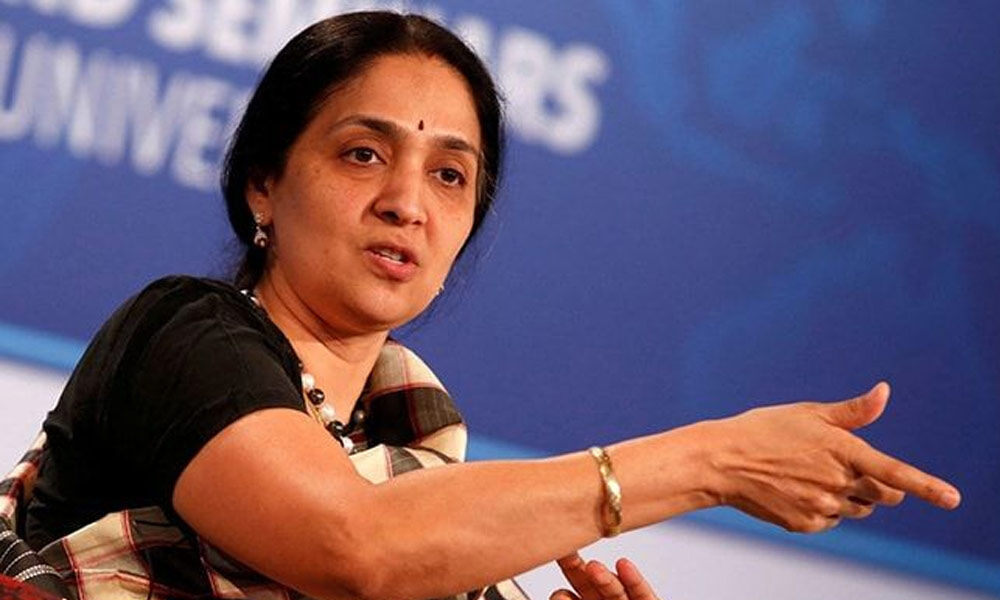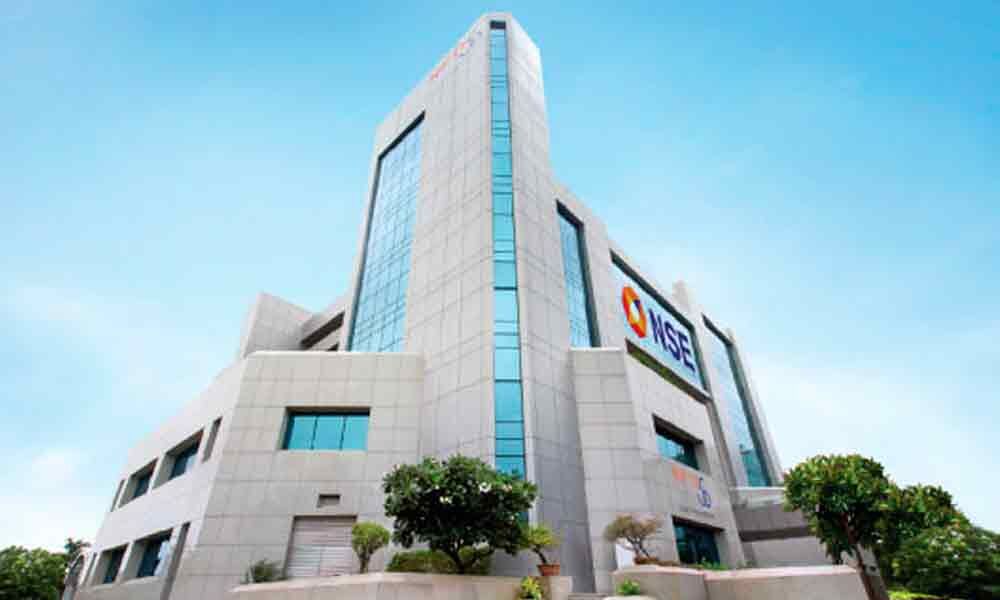SEBI finds NSE, Chitra Ramakrishna, and 16 others guilty of collusion in the NSE dark fiber case.

The 18 businesses together received a penalty from the capital market regulator of Rs 43.8 crore, with the NSE receiving the largest sanction of Rs 7 crore.
On June 28, the Securities and Exchange Board of India (SEBI) found 18 parties guilty of cooperation in the 2015 dark-fibre case, including former National Stock Exchange CEO Chitra Ramakrishna, NSE COO Anand Subramanian, and the NSE.
The 18 businesses were penalized a total of Rs 43.8 crore by the capital market regulator, with the NSE receiving a Rs 7 crore charge on its own. Ravi Varanasi, the NSE’s chief business development officer, was fined Rs 5 crore, while Ramakrishna received a Rs 5 crore penalty.
Subramanian, who, along with Ramakrishna, is the subject of a government investigation into alleged wrongdoings committed while working at the country’s largest stock exchange, has been fined Rs 5 crore.
According to a complaint received by the market regulator in 2015, certain brokers improperly obtained point-to-point (P2P) dark fiber connectivity from Sampark Infotainment, which was the service provider for NSE’s co-location servers. This led SEBI Chief General Manager Suresh Menno to issue the order.
In accordance with the stock exchange and its workers, brokerages like Way2Wealth and GKN Securities benefited from privileged access to the NSE facility, according to the 180-page ruling.
The order also found that Sampark Infotainment was only licensed to maintain the network and was ineligible to put down the dark fiber link.
A “black fiber” is an optical fiber that has been installed but has not yet been utilized. It is available for use in fiber-optic communication and is not linked to any active equipment and does not have any other data flowing through it.
Co-location is a type of infrastructure facility that allows a third party to access infrastructure in order to set up their systems for algorithmic and high-frequency trading. Colocation services were launched by the NSE in 2009.
According to SEBI’s inquiry, Sampark Infotainment placed the dark fiber line in such a way that it gave Way2Wealth and GKN Securities a latency advantage over brokers who did not use Sampark or who were refused access to Sampark.
The SEBI order stated that various regulations, recommendations, and circulars issued in relation to the colocation facility emphasize providing equal, unrestricted, transparent, and fair access to all the brokers and all the participants without any bias or favour.
“Such an unfair advantage available to certain stock brokers is in contradiction to various regulations, recommendations, and circulars issued in relation to the colocation facility,” it said.
According to the SEBI report, NSE implemented discriminatory practices during the co-location fraud era. The judgment found that the NSE provided Way2Wealth and GKN Securities preferential treatment by enabling them to contract with Sampark, a non-eligible firm, for P2P connection at NSE Colocation.
The judgment continued by stating that Ramakrishna, as the MD and CEO of NSE, couldn’t release herself from responsibility for errors, fraud, and omissions involving a co-location facility or other sensitive subject. Ramakrishna contended that she couldn’t be held accountable since she wasn’t involved in the P2P connection network or NSE colocation.
Subramanian was also deemed equally accountable by SEBI, which rejected his claim that, although serving as the MD’s advisor and the company’s promoter to group operating officer, he was not a senior management employee. In his ruling, Menon stated, “I am of the opinion that Subramanian is equally accountable for the acts and omissions on the part of NSE and the MD & CEO of NSE with respect to the P2P connection.”
edited and proofread by nikita sharma




